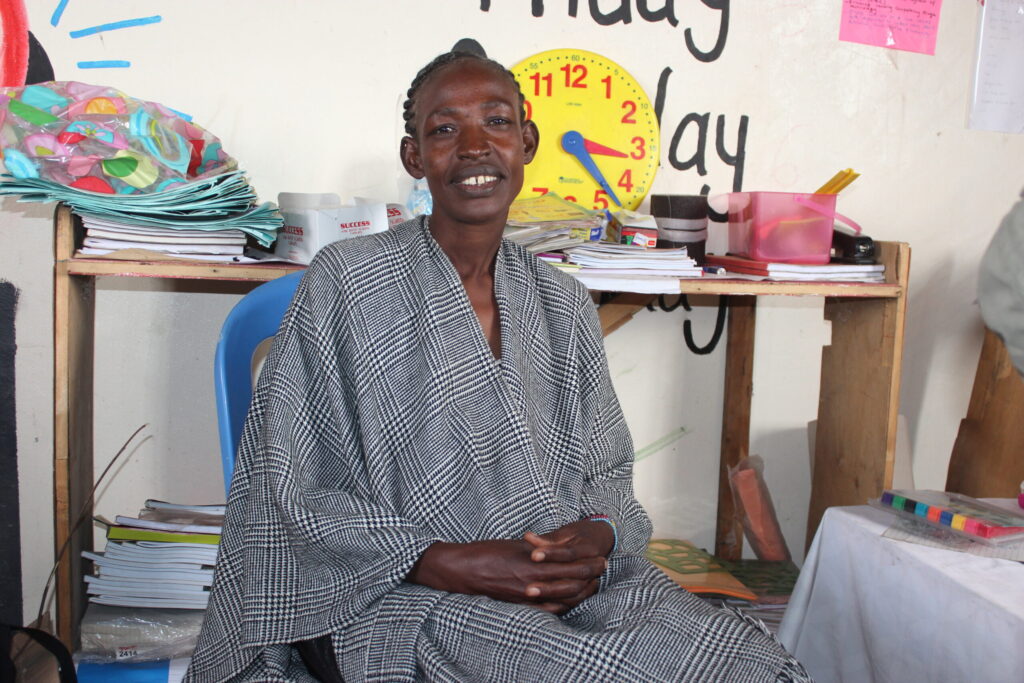According to the World Health Organization (WHO), communities need between 50 and 100 litres of water per household, every day, to satisfy domestic needs such as keeping the household clean, cooking food, washing clothes and for drinking. The quantities required for schools are significantly more, but for many families and schools in Ripoi Narok County, this standard remains unattainable because of the scarcity of this vital resource.

Viola Enole Kool is a teacher at Ripoi Primary School and she says she was the first person to settle in Ripoi together with her family almost 10 years ago. Back then, the area was still largely underdeveloped and it was literally a bush. After getting a nudge from parents nearby, she started an informal school with just 12 pupils and she would teach them under a tree. For a latrine, she constructed a simple superstructure made of plastic paper just for privacy, and with no hole. The area surrounding the school was remote and the fact that it was near a game reserve meant that there was perpetual human-wildlife conflict. According to Viola, there was a constant tussle between man and beast for the limited supply of water in the area.
Viola’s greatest challenge in accessing water since moving to Ripoi had been the wild animals she and her neighbours encountered while looking for water. She says, “…Getting water was most times a gamble. When I was lucky, I would get to the water points before the wild animals and fetch clean water. At other times, I would get there at the same time as the animals, especially the elephants, and I would have to walk back home with empty containers because they could hurt me if I got near them. At other times, getting there after they had left was also a disadvantage, because they would play and roll themselves on the little pools of water making them muddy, and they would also defecate in the water contaminating it.” Not getting water was not only a loss for her but for her young pupils because she would also fetch for them water to drink while they were in class.
Currently, the school has improved and they have classrooms where the pupils can learn comfortably, but their problems are largely unchanged. Access to safe water remains a challenge for them, and the wild animals still pose a threat in their scramble for the little water available. Viola says that to try and mitigate this problem at the school level, they asked the pupils to bring water to school, and the quantities required varied with the grades. The children in nursery school would be asked to come with just a litre of water every day, and the quantities would increase depending on the grade level of the children. They would use the water the children had brought for cooking their lunch, and also for maintaining cleanliness around the school. There were times the pupils would bring dirty water to school because they could not access clean and safe water, but the teachers caught the situation in time and averted cases of food contamination as a result of the dirty water.,
With the perennial droughts, Viola says there are times they are forced to fetch the contaminated water from unprotected water sources for lack of safer alternatives. “…Once we cook our food with it, it becomes hard to even eat because of the foul smell. It is God who protects us during these difficult times, because we literally drink elephant and donkey pee in our tea, and can even smell the urine when we are taking our tea and food. The community has tried to deal with the elephant menace by putting up beehives next to the water points to keep them away. They realized that elephants are afraid of bee stings especially in their trunks, which are very sensitive, and therefore stay away for the most part. While this is a win for the human population, the animals are left at risk of succumbing to the effects of lack of access to water.
Viola now says that with the planned borehole construction, the school and the surrounding community is going to get a lot of reprieves. “Now our lives will not be in danger from the wild animals we were constantly encountering at the water points, and we will have more time to focus on our school activities and our domestic obligations as well. The school will also benefit from the construction of additional sanitation facilities which will ensure that both teachers and pupils will be able to have a safe and private space where they can answer nature’s call whenever the need to arises”.
